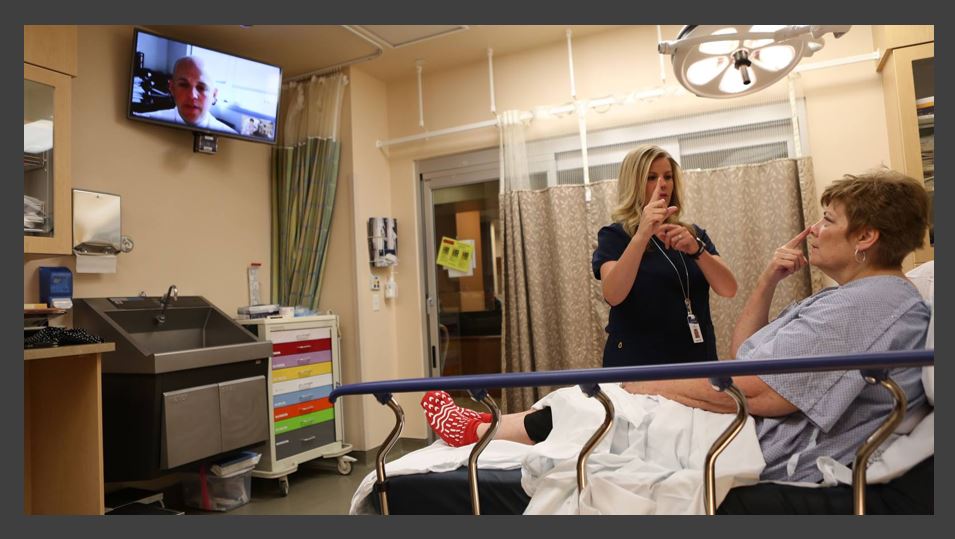News & Trends - MedTech & Diagnostics
First virtual hospital in NSW expands care model

MedTech News: “Virtual models of healthcare are an essential component of Australia’s future health infrastructure,” said Alison Verhoeven, Chief Executive of the Australian Healthcare and Hospitals Association (AHHA).
With authors from RPA Virtual Hospital and Sydney Local Health District (SLHD), the latest Perspectives Brief from AHHA’s Deeble Institute for Health Policy Research, rpavirtual: a new way of caring, was released on 13 October 2020.
“Established as the first virtual hospital in NSW, rpavirtual was launched in early 2020 as a sustainable solution to increasing demand for healthcare in Sydney- and then the COVID-19 crisis hit,” said RPA Virtual Hospital General Manager Miranda Shaw.
“Expanding on existing digital infrastructure and workforce, rpavirtual was able to implement its COVID-19 model of care in just six days.’
“Within 7 months our workforce has grown from six nurses, to a multidisciplinary service of over 50 medical, nursing and allied health teams.
“One of the most remarkable features of rpavirtual has been its ability to pivot to deliver hospital type monitoring in the community using digital innovations, underpinned by robust clinical models of care,” said Ms Shaw.
“Video consults, remote monitoring technologies, escalation pathways and patient access to the Virtual Care Centre 24/7 allows our care teams to identify patient deterioration in a timely manner.
“Only 6 % of rpavirtual patients who have tested positive for COVID have required hospital admission, compared to NSW hospitalisation rates of 10%.
“There is also the issue of COVID-19 negative patients in quarantine who have needed complex clinical care. In the absence of rpavirtual, these patients would have required hospital presentation and admission.
“This model of virtual care has the potential to cut the number of unnecessary Emergency Department presentations, reduce a patient’s length of stay in hospital, and has the ability to empower patients, especially those with chronic illness, to lead a better quality of life,” said Ms Shaw.
“The experience of a rapidly expanding virtual health service has been eye-opening for many, including for rpavirtual’s Information and Communication services, who have played a critical role in the hospital’s patient-centred, technology-enabled design.”
Ms Verhoeven said “Patients accept and respond well to comprehensive, supportive care delivered though virtual technologies. The positive benefits experienced through rpavirtual should be considered by governments in the development of virtual care strategies more broadly. Patients rightly expect that the positive benefits experienced through virtual healthcare during COVID-19 will continue now and into the future.”
News & Trends - Biotechnology

Aussie biotech secures agreement with UQ and USyd to advance cardiovascular diseases research
Biotech News: Australian biotechnology company, Cartherics, developing immune cell therapies for the treatment of cancer, has entered into a Technology […]
MoreNews & Trends - MedTech & Diagnostics

NSW Health Secretary urges more focus on patient experience, drawing from her own heart valve disease journey
In a heart-warming event that united patients, their loved ones, representatives from patient organisations and employees, Edwards Lifesciences hosted its […]
MoreHuman Resources

‘To be an inclusive society, we need an embedded national strategy to combat systemic racism’, says Commissioner Sivaraman
Race Discrimination Commissioner Giridharan Sivaraman has welcomed the release of the Multicultural Framework Review by the Federal Government, calling it […]
MoreNews & Trends - Pharmaceuticals

Shingles vaccine lowers risk of dementia
Pharma News: A recombinant shingles vaccine which was added to Australia’s National Immunisation Program (NIP) in November last year, is […]
More